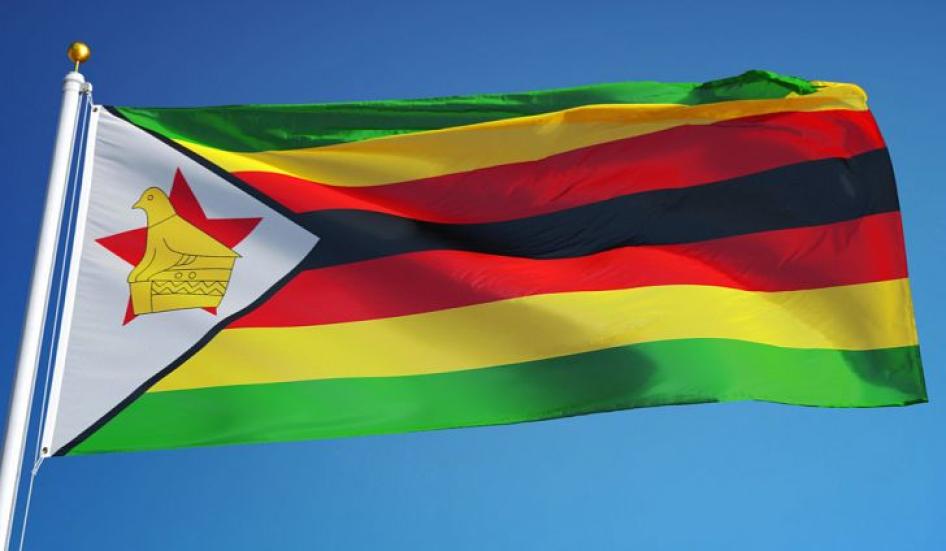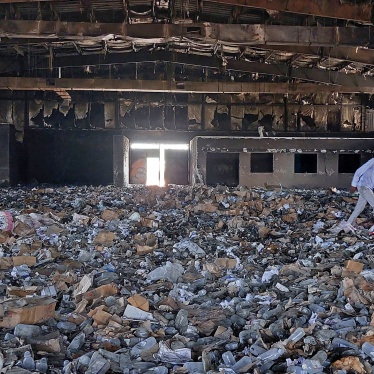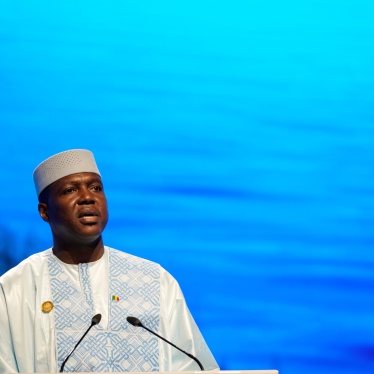On March 4, United States President Donald Trump renewed sanctions against several senior Zimbabwe government officials for another year, citing lack of reforms, economic mismanagement and “accelerated persecution” of critics by security forces. Zimbabwe’s Foreign Affairs minister Sibusiso Moyo expressed disappointment with the decision, saying that it ignored evidence of major reforms.
The US is not alone in highlighting Zimbabwe’s lack of political will to carry out credible reforms. Last month, the European Union noted that lack of reforms, the further shrinking of democratic space and corruption, have contributed to Zimbabwe’s “current deteriorating humanitarian crisis”.
Since the July 2018 elections, President Emmerson Mnangagwa’s government has been characterised by serious human rights violations and a failure or unwillingness to institute lasting human rights reforms. After an official fact-finding mission to Zimbabwe in September 2019, the United Nations (UN) special rapporteur on the rights to freedom of peaceful assembly and of association, Clément Nyaletsossi Voule, noted “a serious deterioration of the political, economic and social environment since August 2018.”
Voule outlined a slew of “extremely disturbing” abuses by Zimbabwe’s security forces in his preliminary findings, citing “reports of excessive, disproportionate and lethal use of force against protesters, with teargas, batons and live ammunition”. He expressed concern that reforms to the public order laws did not go far enough to address challenges to freedom of assembly, including leaving the police with broad discretionary law enforcement powers and a major role in managing public demonstrations.
After Zimbabwe security forces used lethal force to clamp down on post-election protests in Harare on August 1, 2018, President Mnangagwa instituted the Motlanthe Commission of Inquiry. The commission investigated the post-election violence and found that six people died and 35 others were injured as a result of actions by the military and the police. The Zimbabwe Human Rights Commission (ZHRC), an independent body established by the country’s constitution to promote and protect human rights, strongly condemned the army’s use of live ammunition and excessive force on unarmed protesters.
Zimbabwe’s security forces again used excessive force to crush nationwide protests in mid-January 2019. Human Rights Watch (HRW) found that, when people took to the streets to protest Mnangagwa’s announcement of a fuel price increase, security forces responded with lethal force, killing at least 17 people, raping at least 17 women, shooting and injuring 81 people and arresting over 1 000 suspected protesters during door-to-door raids. Most of those killed were from Epworth, Chitungwiza, and the Mbare and Warren Park suburbs of Harare, the capital.
Security forces appeared to have taken advantage of the general unrest during the protests and crackdown to commit rape and other serious abuses. During the protests, the government instructed internet service providers to shut down access to social media and the internet on January 15. Access was restored on January 21 only after a Harare High Court set aside the government directive.
ZHRC investigated the security forces crackdown on the protests and found that “armed and uniformed members of the Zimbabwe National Army and the Zimbabwe Republic Police instigated systematic torture”. The rights commission said the torture was organised and “perpetrated through beating the men with baton sticks on their backs while they lay on the ground, including falanga, i.e. beating under the feet and beating them with open hands”.
As HRW found after investigations, following the January 2019 protests, security forces intensified a crackdown on supporters of the opposition Movement for Democratic Change Alliance (MDC-A), trade union leaders involved in organising the protests, and civil society activists.
Zimbabwe authorities frequently used section 22 of the Criminal Law (Codification and Reform) Act provision on “subverting a constitutional government” to prosecute those suspected of organising protests. This includes seven activists arrested between May 20 and 27 at the Robert Mugabe International Airport in Harare on their return from a workshop on peaceful resistance and civil disobedience in the Maldives, hosted by the Centre for Applied Non-violent Action and Strategies. The continued prosecution of these seven activists — as well as several other peaceful activists — on baseless charges severely undermines the Mnangagwa government’s promise to promote a “new dispensation” that respects basic rights.
The authorities have abducted and tortured several activists in the past year. Obert Masaraure, the national president of the Amalgamated Rural Teachers Union of Zimbabwe, was abducted by armed men at his home in Harare on January 18 and severely beaten with leather whips. He was later handed over to Harare Central Police Station, and later appeared before a Harare magistrate on charges of subversion and inciting public violence.
Earlier, in June 2019, Masaraure was similarly abducted, stripped naked and beaten by gunmen suspected to be state security agents. Before abandoning him in a bush, his captors ordered him to stop mobilising teachers for strike actions.
In August, six masked gunmen abducted, beat, and forced the Zimbabwean comedian and government critic Samantha Kureya (known as “Gonyeti”) to drink raw sewage before she was released. Another activist, Tatenda Mombeyarara, was abducted by eight masked gunmen wielding AK-47 assault rifles. The abductors accused him of organising anti-government protests and beat him badly, breaking his left leg and a finger, then abandoning him.
On September 14, three unidentified men abducted Dr Peter Magombeyi, then leader of the Zimbabwe Hospital Doctors Association, which had organised a series of protests to demand better salaries for government doctors. Prior to his abduction, his family and colleagues told HRW, Magombeyi received a text message from a local mobile number threatening him with disappearance.
Zimbabwe’s health minister, Obadiah Moyo, confirmed on September 16 that Magombeyi was missing and claimed to have activated all state security ministries to determine his whereabouts. His family said that, after torturing and harassing him for four days, Magombeyi’s abductors dumped him outside Harare.
Zimbabwe’s deteriorating economic conditions, widespread poverty, and pervasive corruption further undermine people’s capacity to realise their basic socio-economic rights such as for food, clean water and health services. The UN special rapporteur on the right to food, Hilal Elver, during a visit in November, found that 60% of Zimbabwe’s population of 14 million is food-insecure, living in households that are unable to obtain enough food to meet basic needs. She also reported allegations of partisan distribution of food aid, favouring supporters of the ruling Zanu PF, and recommended immediate reform of the country’s agricultural and food system.
It is the primary responsibility of the Zimbabwe government to ensure that the right to food is respected, protected and fulfilled. In accordance with the country’s constitution, the government should ensure that everyone in Zimbabwe has adequate food without any discrimination.
The Mnangagwa administration has made some efforts toward legal reform, including amending or repealing repressive laws. The Maintenance of Peace and Order Act (MOPA) replaced the Public Order and Security Act (Posa), which government agencies had invoked to crack down on public protests and repress the media. But the new legislation potentially violates international human rights norms and standards, much like the law it replaced. Under the new legislation, law enforcement agencies still have broad regulatory discretion and powers to curtail the right to peaceful assembly.
Instead of denying the clear facts behind the US sanctions renewal, the Zimbabwean authorities should focus on putting in place key reforms to improve respect for human rights. The reforms include, in line with section 210 of the Zimbabwe constitution, the establishment of an independent system for investigating and providing remedies for public complaints of misconduct by security services.
The authorities should also carry out the recommendations of the Motlanthe Commission of Inquiry, including ensuring that security officials responsible for human rights violations are promptly brought to justice and to create a special committee to compensate victims. The security forces responsible for abuses should be appropriately punished to end the impunity that has characterised alleged abuses by government forces.
The government should create an enabling environment for non-governmental organisations, activists, trade union members, and the political opposition to operate freely. This includes repealing sections of the Criminal Law (Codification and Reform) Act on “subverting a constitutional government”, which has been used to prosecute activists and opposition leaders suspected of organising protests.
The Mnangagwa government should demonstrate that it is serious about reforms. Zimbabwe’s full re-engagement with the international community will depend on real change and a clear commitment to respect for human rights, good governance, and the rule of law.










